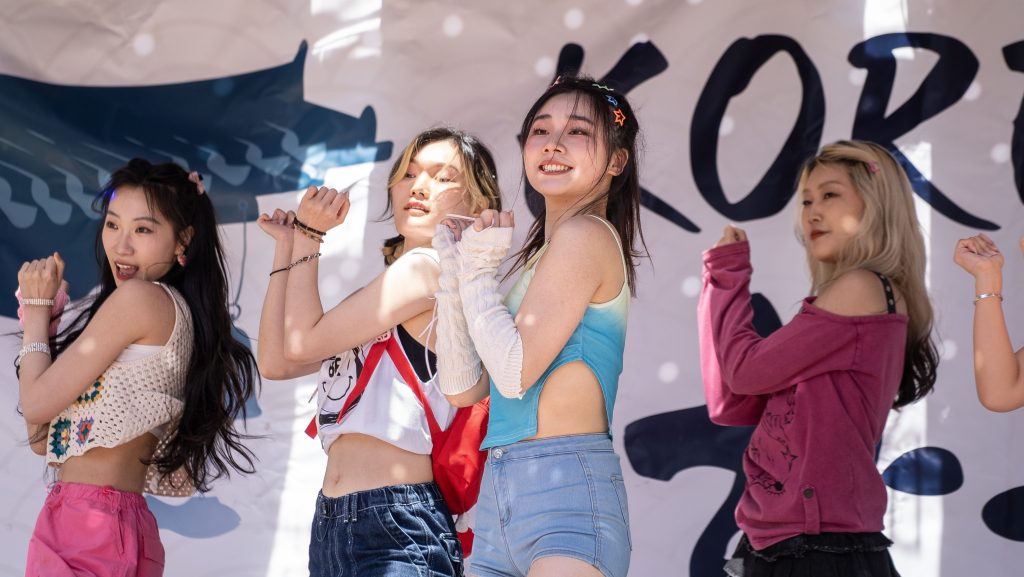~Making Korean Friends: Getting Closer Beyond Cultural Barriers~

Every year, more and more Japanese people become interested in Korea through K-Dramas and K-Pop. Many of them actually spend time in Korea for travel, studying abroad, working holidays, or employment, and there are surely those who have thought, “I want to have Korean friends!”
However, even though Japan and Korea are both in Asia, there are differences in how people form relationships and in social manners. In this article, we’ll take a detailed look at tips for Japanese people to make Korean friends and the cultural and etiquette differences to be aware of in order to build good relationships.
https://jp.initialk.net/wp-admin/post.php?post=1229&action=edit1. Be Mindful of Conversation Style in First Meetings! “Honorifics” Are Very Important in Korea
Koreans are generally friendly and kind, but their culture places great importance on first impressions and showing respect.
In particular, it is crucial to use honorific language (존댓말) when meeting someone for the first time.

Japan also has polite language, but in Korea, hierarchical relationships based on age are stricter, and it is standard to use honorifics when speaking to someone older. Conversely, once you find out someone is the same age, you may gradually switch to casual language (반말).
In addition, it is common in Korea to ask “How old are you?” during a first meeting. This is not considered rude—it’s simply a way to determine the proper level of politeness to use in the conversation.
Key Points:
- Greet politely and with respect at first.
- Don’t be surprised if someone asks your age.
- Avoid being overly familiar during the first meeting.
2. Communication Mainly Happens Through KakaoTalk!
Once you make friends in Korea, the most common way to stay in touch is through KakaoTalk. In Korea, KakaoTalk is used far more widely than LINE, and many people express their personality through stickers, backgrounds, and profile pictures.

In addition, Koreans tend to send messages more frequently and reply faster than Japanese people. However, there’s no need to force yourself to match their pace.
Key Points:
- Once you get used to using KakaoTalk, communication becomes smooth.
- It’s common to share selfies or food photos.
- Don’t be too sensitive if someone reads your message but doesn’t reply immediately.
3. Shared Hobbies Are the Key to Making Korean Friends!
The fastest way to naturally get close to Koreans is by having shared hobbies. For example, being a K-Pop fan, enjoying Korean dramas, gaming, cooking, or watching movies makes it much easier to continue conversations.
In addition, in major cities like Seoul or Busan, there are many language exchange events and apps, providing plenty of opportunities to meet Koreans who are studying Japanese.
Recommended Places to Meet:
- Language exchange apps (e.g., HelloTalk, Tandem)
- Language exchange cafes or guesthouses
- Japan–Korea cultural exchange events
- Cultural clubs or university circles
4. Pay Attention to Table Manners and Drinking Etiquette!
In Korea, manners are important during meals and drinking gatherings, especially when dining with someone older or of higher status.
For example, when pouring drinks, it is customary to use both hands, and if an older person pours you a drink, you should turn your head to the side when drinking. These customs may feel a bit unusual for Japanese people, but they are all expressions of respect for others.
Manners to Keep in Mind:
- Do not stick chopsticks upright in rice; this is taboo.
- Sharing food is common; some people may find it a bit surprising.
- When paying the bill, it’s typical for one person to pay first, and friends take turns treating each other later, rather than splitting the bill evenly.
5. Don’t Be Surprised by Differences in Personal Space
Koreans can become very friendly and close once a relationship develops, which may sometimes surprise Japanese people. Common situations include:
- Frequent physical contact (e.g., putting an arm around your shoulder, linking arms)
- Being invited to someone’s home suddenly
- Being asked to meet up frequently, e.g., “Can you hang out now?”
This closeness is not meant in a negative way—it’s actually a sign of a strong friendship.
If you want to decline, there’s no need to force yourself. It’s perfectly fine to say something honest like, “I’m a bit tired today…”. In Korea, being direct when refusing is often seen as sincere and respectful.
6. Be Mindful of Differences in Building Friendships
In Japan, friendships tend to develop gradually, but in Korea, once people become close, the relationship can intensify quickly. Friends may contact you frequently and share almost everything with you.
However, emotions can also fluctuate strongly, and small misunderstandings may cause distance, so caution is necessary.
Tips for Maintaining Long-Lasting Friendships:
- Be honest about your own feelings.
- Apologize sincerely if conflicts arise.
- Show trust through actions, not just words.
Table of Contents









